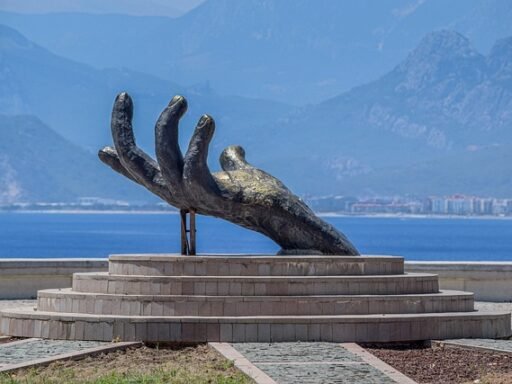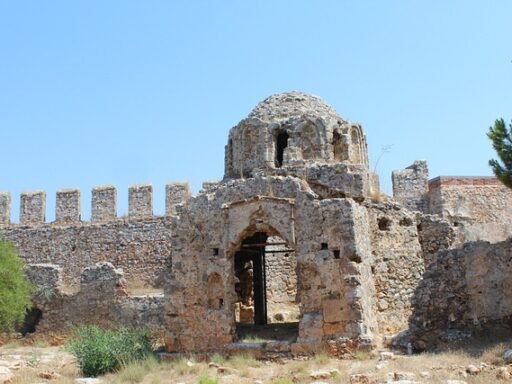Why Does Turkey Have an Issue with Greece? Insights for Travelers Considering Antalya
Turkey and Greece have a rich tapestry of history woven with both cultural harmony and conflict, which could influence your travel plans to Turkey’s stunning Antalya region. As international relations remain on the forefront of global conversations, understanding the historical context of these two neighboring countries can enhance your travel experience. In this article, we’ll explore why Turkey has longstanding issues with Greece while also highlighting why Antalya is the perfect destination for a vacation.
Historical Context of Turkish-Greek Relations
The roots of the Turkey-Greece dispute can be traced back to historical events such as the Ottoman Empire, the Balkan Wars, and the population exchanges in the early 20th century. After the fall of the Ottoman Empire following World War I, Greece expanded its territorial claims, leading to tensions over islands in the Aegean Sea. With its significant cultural heritage and strategic importance, Greece’s claims over certain islands have continued to fuel diplomatic tensions.

For travelers considering a vacation in Turkey, particularly in cities like Antalya, it’s beneficial to understand the underlying historical context. While contemporary politics may dominate the headlines, the local people of both countries often prioritize hospitality and coexistence over politics.
Current Issues: Territorial Disputes and Natural Resources
One of the main sticking points between Turkey and Greece is centered on territorial disputes in the Aegean Sea. These disputes include airspace disagreements and claims over maritime borders, particularly in relation to potential oil and gas reserves. In recent years, Turkey has increased its exploration efforts in the Eastern Mediterranean, igniting tensions with Greece and the European Union.
For visitors looking to explore Antalya, these political dynamics may seem far removed from their travel plans. Nevertheless, it is essential to stay informed about current events as they can sometimes impact travel advisories and overall regional stability.
The Role of Cyprus in Turkish-Greek Relations
The Cyprus issue is another critical factor in the relationship between Turkey and Greece. Since the division of Cyprus in 1974, Turkey’s support for the Turkish Republic of Northern Cyprus has been a sore point for Greece. This issue remains unresolved and often resurfaces in discussions between the two nations.
Understanding the Cyprus question can add depth to your experience when visiting Anatolia and specifically Antalya. Many travelers to this beautiful coastal city may have an interest in learning about its broader geographical and political context, enriching their vacation experience.
Antalya: A Gem of Turkish Hospitality and Culture
Despite the political tensions, Antalya emerges as an inviting oasis for those seeking sun-soaked beaches, rich history, and delectable Turkish cuisine. The city’s stunning sandy shores, such as Lara Beach and Konyaaltı, offer the perfect backdrop for relaxation and enjoyment.
Antalya is also renowned for its historical landmarks, including the ancient city of Perge and the stunning Düden Waterfalls. As you delve into Turkey’s extraordinary cultural heritage, visiting these sites can help to contextualize the region’s history, including its connections with Greece.
Adventure Awaits: Outdoor Activities in Antalya
For adventurers, Antalya provides diverse outdoor activities that cater to all types of travelers. Explore the rugged beauty of the Taurus Mountains through hiking or embark on a thrilling jeep safari. Water sports, including diving, paragliding, and jet skiing, are also popular, allowing visitors to immerse themselves fully in the region’s natural beauty.

These activities enable travelers to focus on enjoyment and excitement despite the political uncertainties in the broader region. Engaging in the stunning landscapes and vibrant local culture can distract from any lingering tensions between Turkey and Greece.
Interacting with Locals: A Friendly Encounter
While political tensions may exist, the residents of Antalya are typically warm and welcoming. Engaging with locals can provide unique insights into Turkish culture and perspectives on the historical issues between Turkey and Greece. Many locals stress the importance of unity and friendship in the face of political differences, reminding visitors that these nations share more cultural similarities than one might expect.
Joining local food tours, attending traditional events, or participating in workshops showcasing Turkish craftsmanship can offer enriching cultural encounters that exemplify Antalya’s hospitality.
Conclusion: A Balanced Perspective for Travelers
In summary, understanding the complex relationship between Turkey and Greece can provide valuable context for your vacation in Antalya. While ongoing territorial disputes and historical grievances shape international relations between these nations, the beauty and warmth of Antalya create a compelling escape for all types of travelers.
From its stunning beaches to rich historical attractions, Antalya stands as a testament to Turkey’s enduring charm. It beckons those looking for both relaxation and adventure, making it a prime destination, regardless of the historical nuances between Turkey and Greece. Remember to stay updated on current events, but rather than letting geopolitics cloud your journey, embrace the vibrant experiences that await you in this stunning corner of the world.Of course! However, I need a bit more context to understand what you would like me to continue with. Could you please provide more details or specify the topic you’re interested in?Of course! Could you please provide more context or specify what you would like me to continue with?
Frequently Asked Questions
What role do Cyprus tensions play in Turkey-Greece conflicts?
The tensions in Cyprus significantly influence the historical and geopolitical conflicts between Turkey and Greece. These tensions arise from territorial disputes and national identity issues, impacting bilateral relations. The Cyprus issue often exacerbates existing hostilities, as both nations seek to assert their influence in the region, leading to a cycle of diplomatic friction and military posturing.
How do NATO and EU influence Turkey-Greece dynamics?
NATO and the EU play significant roles in the Turkey-Greece relationship by facilitating dialogue and cooperation, while also addressing security concerns. NATO provides a platform for military collaboration and conflict de-escalation between the two nations, whereas the EU influences economic and political interactions, encouraging adherence to democratic values and international law. Their involvement aims to stabilize regional tensions and foster peaceful resolutions.
What recent events have intensified the Turkey-Greece dispute?
Recent tensions between Turkey and Greece have escalated due to disputes over territorial waters and airspace, coupled with issues related to military activities in the Aegean Sea. The situation has been further fueled by nationalist rhetoric from both sides, irregular migrations affecting border security, and rivalry over energy exploration in the Eastern Mediterranean.
How does territorial dispute impact Turkey-Greece relations?
Territorial disputes between Turkey and Greece primarily revolve around issues in the Aegean Sea and Cyprus, affecting diplomatic relations, economic interactions, and regional stability. These disputes often lead to heightened military tensions, complicate negotiations, and influence public sentiment in both countries. Effective resolution is crucial for fostering peaceful bilateral relations and enhancing regional cooperation.
What are the historical roots of Turkey’s issues with Greece?
The historical tensions between Turkey and Greece can be traced back to the decline of the Ottoman Empire, during which Greece fought for independence in the 19th century. Disputes over territorial boundaries, particularly in the Aegean Sea, and differing national identities have fueled ongoing conflicts. The legacy of the population exchanges and the rivalry over Cyprus further complicate relations. Understanding these historical contexts is essential for analyzing current issues between the two nations.





